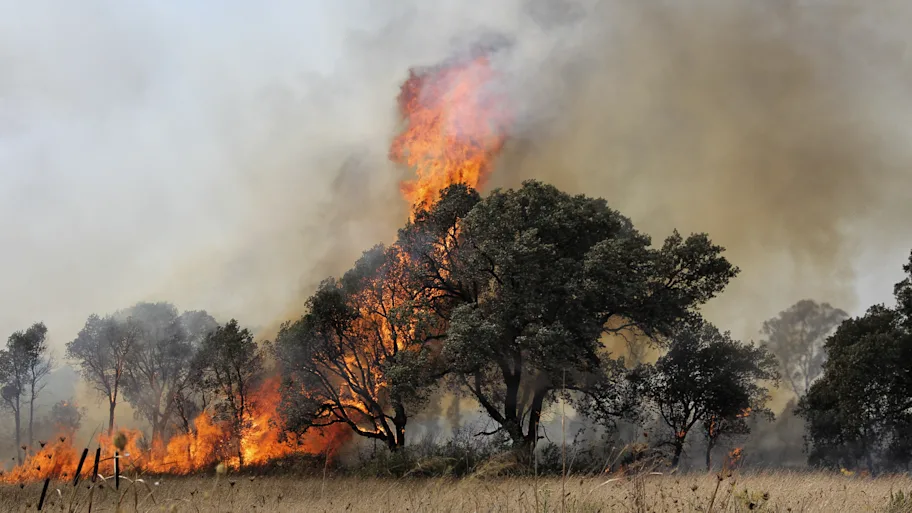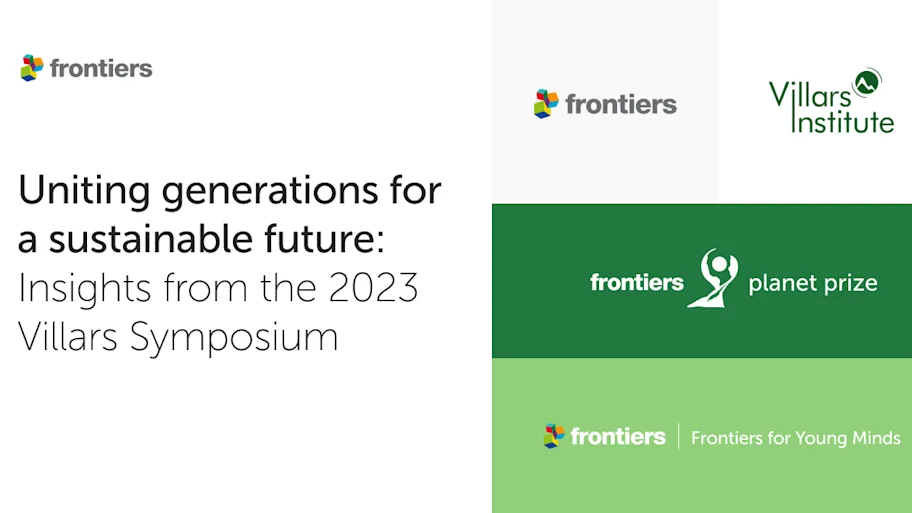
- Science News
- Frontiers news
- Villars Institute Summit 2024: Catalyzing systematic change through interdisciplinary cooperation
Villars Institute Summit 2024: Catalyzing systematic change through interdisciplinary cooperation

The Villars Institute Summit 2024 was a pivotal gathering of minds, set against the picturesque backdrop of Villars-sur-Ollon, Switzerland. Over three days, more than 280 experts, entrepreneurs, investors, and philanthropists met to address the pressing challenges of our time: the climate and biodiversity crises. Through plenary discussions, workshops, and roundtables, participants focused on how interdisciplinary cooperation can accelerate systemic change and address these crises in a holistic manner.
Frontiers and the Frontiers Research Foundation were in attendance to contribute to the conversation and organized three discussion-based sessions:
Preserving Planetary Boundaries
Moderator: Shyla Raghav, chief climate officer, TIME
Featuring:
Jane Madgwick, executive director, Global Commons Alliance
Marco Lambertini, convener and secretariat executive chair, Nature Positive Initiative
Michael Schaepman, president, University of Zurich
Jean-Claude Burgelman, director, Frontiers Planet Prize
Navigating the Science & Technology Landscape
Featuring:
Subra Suresh, president, Global Learning Council
Robert Berendes, executive partner, Flagship Pioneering; chairman, CiBO Technologies and Invaio Sciences
Miniya Chatterji, chief executive officer, Sustain Labs Paris
Frederick Fenter, chief executive editor, Frontiers
Advancing Systems Change thru Scientific Research
Moderator: Krithi Karanth, chief executive officer, Centre for Wildlife Studies
Featuring:
Paul Behrens, associate professor, Leiden University; 2023 International Champion, Frontiers Planet Prize
Carlos Peres, professor, University of East Anglia; 2023 International Champion, Frontiers Planet Prize
Gilbert De Gregorio, associate director, Frontiers Planet Prize
The complementary sessions explored the planetary boundaries, and with six of the nine already exceeded, attention was given to what can be done to avoid crossing further tipping points. To better understand how best to act, participants first learned about the evolution of systems changes as it relates to planetary health. Analyzing key terms and concepts in research articles published over the last several years, it was revealed that previously standalone topics such as climate change and climate modeling or weather patterns and participation have become more closely linked, and new concepts stemming from climate change have emerged, as seen with human activities, land use, and biodiversity.
Given the interconnectedness of the planetary boundaries and their many elements, it has become even more important to know how they function, which requires ongoing, transdisciplinary research. According to UNESCO, global spending on research and development has reached a record high of almost US$ 1.7 trillion and 10 countries now account for 80% of this spending. The impact this research has on the climate and nature agendas continues to be a popular topic among stakeholder groups, with many acknowledging a global knowledge gap. Not only does climate-related research need to account for the complex systems at play, but it also needs to be available and accessible to all. By making science open, it is possible to accelerate transdisciplinary solutions that can then be translated into disruptive innovation across industries to collectively combat climate change.
While there is still progress to be made, designated initiatives like the Frontiers Planet Prize recognize and reward research which embeds systems change as a key mechanism, making it possible to gain support from beyond the scientific community to encourage the adoption and implementation of more systems-based solutions. Through the various interactive sessions and thoughtful discussions, the Villars Summit participants reached a consensus on the need to leverage systems thinking to co-create solutions. In examining these different areas and analyzing more recent developments and the success of certain initiatives, they became more aware of what is needed to foster this type of change at various levels and ways they can take action in their respective positions as part of a larger collaborative effort to save the planet.
The topics raised at this year's Villars Summit add to the larger dialogue around the climate crisis and will serve as the foundation for future gatherings. As a knowledge partner of the Villars Institute, the Frontiers Research Foundation will delve further into viable solutions during the Frontiers Planet Prize Award Ceremony, taking place at the 2024 Villars Symposium in June. The Symposium provides an intergenerational platform to discuss advancing systems change to enable a nature positive economy, with the soon-to-be announced 2024 Frontiers Planet Prize International Champions sharing their breakthrough sustainability solutions.
About the Frontiers Research Foundation
The Frontiers Research Foundation is a not-for-profit organization based in Switzerland, which was founded by Kamila and Henry Markram, neuroscientists from the Swiss Federal Institute for Technology (EPFL). It raises funds to support programs that accelerate scientific solutions for healthy lives on a healthy planet.
About the Frontiers Planet Prize
The Frontiers Planet Prize is a global competition for scientists and research institutions to propose solutions to help the planet remain within the safe operating space of any one or more of the nine planetary boundaries. It was created by the Frontiers Research Foundation on Earth Day 2022 to mobilize the global scientific community, make it complete at the highest level of excellence, and contribute to the acceleration of concrete solutions to the challenges defined by the planetary boundaries. To date, it has drawn together hundreds of scientists, 20 national academies of science, 475 leading universities and research institutions to compete for three prizes of 1M Swiss francs each as adjudicated by a Jury of 100 leading sustainability scientists.
About Frontiers
Founded in 2007, Frontiers is the 6th largest scientific publisher. We publish rigorously peer-reviewed, quality-certified research by the world's top experts. Scientists empower society and our mission is to accelerate scientific collaboration by making science open. We place the researcher at the center of everything we do and enable the research community to develop the solutions we need to live healthy lives on a healthy planet. Featuring custom-built technology, artificial intelligence, and rigorous quality standards, our research articles have been viewed more than 2.7 billion times, reflecting the power of research that is open for all.






